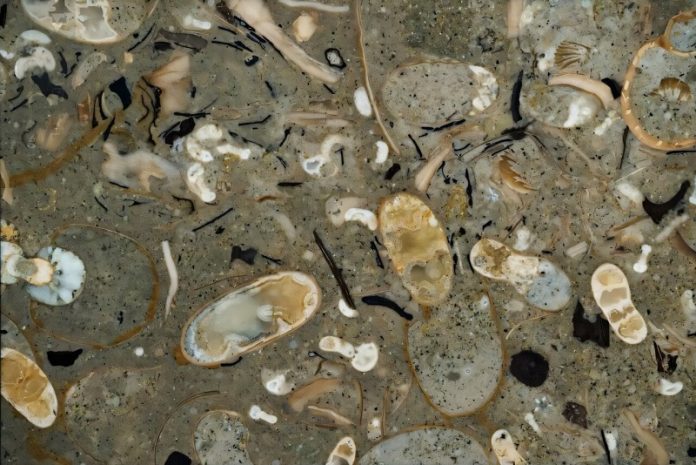
New fossil research has revealed that squids were already dominant predators in the oceans 100 million years ago—much earlier than scientists previously believed.
Using a cutting-edge technique to uncover hidden fossils inside rocks, researchers have found that ancient squids weren’t just present—they were thriving.
A team from Hokkaido University in Japan developed a powerful method that allows scientists to scan and fully digitize rocks, revealing every fossil inside in 3D.
By applying this method to Late Cretaceous rocks from Japan, the researchers uncovered over 1,000 fossilized beaks of ancient cephalopods—the group that includes squids, octopuses, and cuttlefish.
Among them were 263 squid specimens, including around 40 completely new species.
Squids usually don’t leave behind many fossils because their bodies are soft and decay quickly. However, their beaks—hard, curved mouthparts—can survive the fossilization process.
These beaks are now giving scientists a clearer picture of squid evolution and their role in ancient marine ecosystems.
One of the most surprising discoveries was just how common and large these ancient squids were.
According to Dr. Shin Ikegami, the lead author of the study published in Science, the number and size of the squid beaks suggest that squids were far more numerous than ammonites, the shelled cousins of squids that were long thought to dominate the seas.
Some squid specimens were even larger than the ammonites and many bony fishes found in the same rocks.
This challenges the long-held belief that squids only began to flourish after the mass extinction that wiped out the dinosaurs around 65 million years ago. The new evidence shows that squids had already diversified and taken over the oceans tens of millions of years earlier.
The study also found that two main types of modern squids—those that live near the shore (Myopsida) and those found in the open ocean (Oegopsida)—were already around during the Cretaceous period. This suggests that the split between these two groups happened much earlier than previously thought.
Associate Professor Yasuhiro Iba, who led the study, said the findings completely change our understanding of how marine life evolved. “Squids were probably the first fast, intelligent swimmers to take over the ocean, long before whales and sharks,” he said.
By combining new technology with ancient clues, scientists are now rewriting the story of how squids rose to power in the prehistoric seas.



